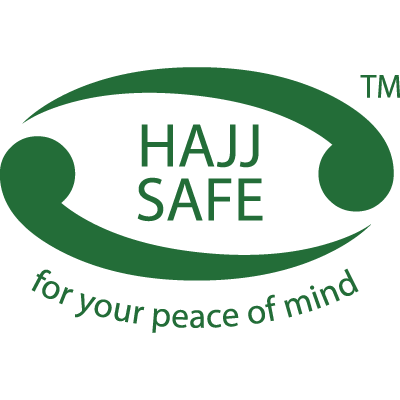Masjid al-Nabawi isn’t just any mosque — it’s the second holiest place in Islam, after the Haram in Makkah. Built by the Prophet Muhammad ﷺ with his companions, it is more than a historical site. It is a living symbol of devotion, knowledge, and mercy. For many Muslims, visiting Madinah is a dream come true — and standing within the Rawdah is a moment they never forget.
But with this honour comes responsibility. Many visitors enter the Prophet’s ﷺ mosque with sincere hearts but unknowingly fall into actions that go against its sacred etiquette. And in a space so beloved to Allah and His Messenger ﷺ, even small mistakes can carry big consequences.
“O believers! Do not raise your voices above the voice of the Prophet, nor speak loudly to him as you do to one another, lest your deeds become void while you are unaware.”
— Surah Al-Hujurat (49:2)
This verse isn’t just about tone — it’s about adab (manners), presence, and spiritual awareness.
So how do we preserve the sanctity of Masjid al-Nabawi and protect our own reward? By being aware of these common mistakes and approaching this sacred space with humility and knowledge.

What Makes Masjid al-Nabawi So Special?
Masjid al-Nabawi was built by the Prophet ﷺ after his migration to Madinah. Over time, it became a centre of worship, learning, and community. Today, it is the resting place of the Prophet ﷺ, as well as two of his closest companions — Abu Bakr (RA) and Umar (RA).
One area inside the masjid, known as Rawdah, holds special significance. The Prophet ﷺ said:
“What is between my house and my pulpit is a garden from the gardens of Paradise.”
— Bukhari & Muslim
This hadith alone shows why this space is sacred. The reward for praying in Masjid al-Nabawi is immense, but so is the responsibility to maintain its honour and dignity.
1. Raising Your Voice
Speaking loudly — especially near the Rawdah or the resting place of the Prophet ﷺ — directly contradicts the Qur’an. Loud conversations, yelling across the prayer hall, or reciting Qur’an or du’as loudly can disturb others and violate the peace of the masjid. Instead, speak in hushed tones and recite gently. Let your presence reflect reverence.
2. Wasting Time on Social Media or Idle Talk
You’ve entered a space where angels gather, du’as are answered, and salah holds great reward. Yet many fall into the habit of scrolling through their phones, taking endless selfies, or engaging in gossip. Your time here is precious. Focus on extra prayers, Qur’an recitation, and quiet dhikr. Be present with Allah ﷻ.
3. Pushing, Shoving, or Rushing
Rawdah is a place every visitor wants to reach — but pushing others to get there goes against the very spirit of the Prophet ﷺ. If the space is crowded, wait patiently. If you don’t get to pray exactly where you hoped, know that Allah rewards sincerity and patience more than location.
4. Touching or Kissing Structures for Blessings
It is not from the Sunnah to kiss or rub the walls, doors, or minbar of the mosque. Barakah (blessings) are not found in objects — they are found in obedience to Allah and His Messenger ﷺ. Many well-meaning pilgrims fall into this habit thinking it is an act of love. But true love is shown by following the Prophet ﷺ, not inventing new practices.
5. Making Du’a to the Prophet ﷺ
Some visitors mistakenly direct their du’as to the Prophet ﷺ, asking him for help or intercession. But du’a is an act of worship that belongs to Allah alone. We send our salam to the Prophet ﷺ, we love him deeply — but we direct all prayers and needs to the One who created him: Allah ﷻ.
6. Loud Congregational Du’as Near the Grave
Group du’as or dhikr sessions near the grave, especially if done loudly, can disturb those trying to pray or reflect. The Prophet’s ﷺ resting place is not for loud ritual; it’s for quiet, dignified remembrance. Du’a should be made individually, silently, or in a soft voice, in accordance with the Sunnah.
7. Forgetting the Sanctity of the Space
This final mistake is the one that often leads to all the others — treating the Prophet’s ﷺ mosque like a public square or a tourist site. But this is no ordinary location. It’s a place where angels descend, where the Prophet ﷺ once walked, and where your intentions are magnified. Let your behaviour reflect that awareness at all times.
Final Advice: Know Before You Go
When you enter Masjid al-Nabawi, you are stepping into a place that millions of righteous believers have prayed in for over 1,400 years. You are following in the footsteps of the Sahabah. You are walking on blessed ground. Let every step, every word, every glance be made with awareness and love.
May Allah allow us to visit Masjid al-Nabawi with adab, sincerity, and humility — and may He accept every moment we spend there. Ameen.
Written by Hajj Safe — inventors of the world’s first anti-theft Ihram belts, secure Hajj & Umrah travel bags, and trusted safety gear for pilgrims worldwide. Hajj Safe products are designed to help you focus on your worship with peace of mind. Shop Here >


